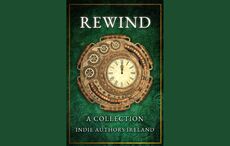Three Billboards outside of Ebbing, Missouri brings up debate on violence against women and racism in America but shows closed minds.
On Sunday, March 4, Hollywood’s Irish royalty -- among them Saoirse Ronan and Daniel Day-Lewis -- will gather for the Academy Awards, that annual rite of self-congratulation that, in recent years, has been unable to ignore some of the real problems plaguing the world.
Which brings us to Martin McDonagh, born in England to Irish parents, thrust into the showbiz spotlight by his blistering Irish plays such as The Cripple of Inishmaan.
McDonagh has shifted from theater to movies, and his latest, Three Billboards outside of Ebbing, Missouri, has already won a slew of awards and is up for several more at the Oscars.
It has also been the subject of intense debate because it deals with those aforementioned problems plaguing the real world. Among them, violence against women and racism.
It used to be that Hollywood folks made themselves feel righteous by simply making a movie about such problems. Think of noble classics such as To Kill a Mockingbird.
But things have gotten complicated and people have started asking questions, such as how do you go about dealing with such problems? And, are you merely exploiting a social problem, rather than attempting to treat it with any seriousness or complexity?
Read more: Frances McDormand delivers tour de force in Martin McDonagh's Three Billboards
And so, we have Three Billboards. (I’ll avoid major spoilers.) The film is about a woman named Mildred whose daughter has been murdered, and is fed up that local police have not come up with a single suspect. So, Mildred pays to place prominent messages on -- you guessed it -- three billboards, taunting the local police.
But it turns out the local police chief is not only a decent fellow, he’s dealing with some intense personal stuff.
There is, however, another cop named Dixon who’s a major hothead. And racist. He becomes a more important character as the story unfolds.
And that’s where some of the most intense backlash against Three Billboards has come.

London Irish writer and director Martin McDonagh.
As Vanity Fair noted, “The film’s detractors…find McDonagh’s handling of race in America wanting.”
“What’s got people arguing,” Wesley Morris added in The New York Times, “is … whether this movie about America ought to be, say, redeeming one of the racist cops serving and protecting Ebbing.”
Look, Three Billboards is an imperfect, messy movie. And it certainly doesn’t help that this race debate is happening when a brilliant brain-bender like Get Out, and crowd-pleaser like Black Panther, are also available to movie audiences.
Overall, though, there is much to like in Three Billboards. Despite its heavy topics, it does something so few “serious” Oscar-bait movie do these days -- it also tries to make you laugh. McDonagh also admirably cranks up the rage, as the film’s explosive conclusion approaches.

Sam Rockwell in Three Billboards
Still, as a British-Irish citizen writing about the rural American South, McDonagh is open to charges that this may not be the turf he knows best. At least that other celebrated Irish playwright who fumblingly confronted race, Eugene O’Neill, was American.
But race is not the only issue here. The other is redemption.
Some of McDonagh’s critics take issue with how Dixon is (or is not) redeemed. Others, though, come close to suggesting he is essentially irredeemable. And that may well be true for various racists -- and sexists and homophobes. (Our president comes to mind.)
But there is a danger here. On both sides of the political aisle, there is an underlying sense that the other side is not only intellectually wrong, but, well, incurable. Irredeemable. This is a scary point to reach, in part because it leaves no room -- even hope -- for discussion or persuasion.
People simply post their own points, and read no one else’s. Kind of like a billboard.
Read more: Irish author Edna O’Brien: I’ve been #MeToo-ing for 50 years




Comments